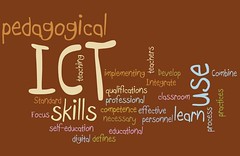Sharing an email from Julie Manandhar at CILT, encouraging people to register for the Primary Teacher’s project with Spain or Germany – closing date is Friday 30th April.
The deadline to secure a place on a two-week course in Spain or Germany is fast approaching.
The Primary Teachers’ Project – a partnership between the British Council and CILT, the National Centre for Languages is a great opportunity for primary teachers to spend two weeks abroad to improve their language and pedagogical skills and to gain a greater cultural understanding of the country.
The courses involve a week of intensive language and methodology support, followed by a week of work shadowing in a primary school.
The first projects will run in Germany and Spain between 25 October and 5 November 2010, but the deadline to apply for these visits is this Friday (30 April 2010). Additional projects will take place in France and Germany during February 2011 and France and Spain during April 2011.
If you are a primary teacher then you are eligible for EU Comenius funding of up to 2,500 Euros to pay for travel and subsistence. A supply cover contribution of up to £525 is also available to support your school during the week of term when you will be abroad.
If you or any of your colleagues are interested in applying for one of these exciting projects, please visit the British Council website, and select the ‘In-Service Training’ Application form.
Or, you can find more information on the Primary Languages and CILT websites, where we’ve added a template application form to support applicants. Alternatively, email:ptp@cilt.org.uk




 This is the first post on my new website –
This is the first post on my new website – 


